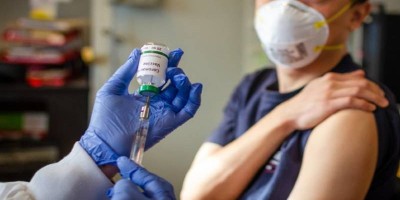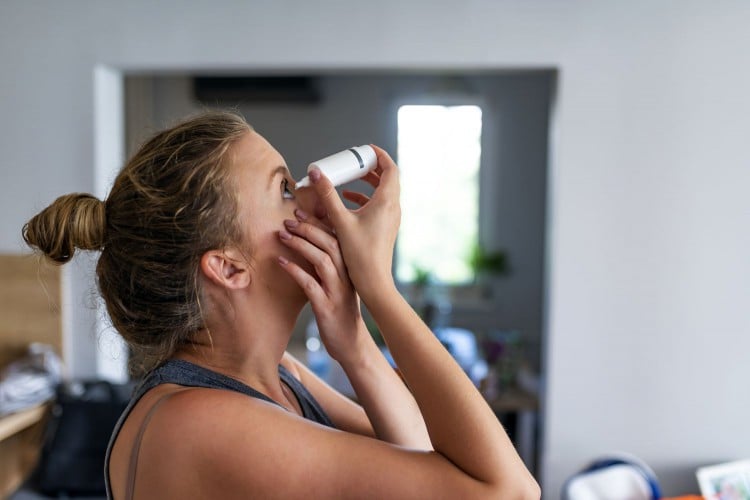Are There Medical Exemptions From the COVID-19 Vaccine

Getting the COVID-19 vaccine is becoming a requirement at many workplaces. Both the federal Occupational Safety and Health Administration and the North Carolina Division of Occupational Safety and Health are planning to compel more prominent companies soon to implement a vaccination requirement.
Medical exemptions under the Americans with Disabilities Act and religious exemptions under Title VII of the Civil Rights Act of 1964 render vaccine requirements legal. According to the media, many workers are requesting religious and medical leave.
The Americans with Disabilities Act provides an exception for medical necessity, which is discussed in this blog article. Accommodations for religious practices will be discussed in a subsequent blog article.
Background
The Americans with Disabilities Act mandates, in general, that businesses make reasonable adjustments for their employees who have impairments. One example of a handicap that may warrant an accommodation is a medical condition that makes receiving the COVID-19 immunization risky for the employee.
The most reasonable modification would be to waive obligatory vaccinations. Medical proof adequate to demonstrate the presence of a handicap and to indicate how the impairment affects the employee's capacity to perform work tasks or fulfill terms of employment may be required by an employer.
Few Medical Conditions or Disabilities Prevent COVID-19 Vaccination.

Fortunately, there are relatively few contraindications to receiving a COVID-19 vaccination. However, many patients with particular diseases mistakenly believe vaccination is unsafe. The federal Centers for Disease Control and Prevention have made it clear that the following populations can get the COVID-19 vaccine without risk:
- auto-immune diseases such as Guillain-Barr茅 and chronic fatigue syndrome
- having a weakened immune system or being on immunosuppressant drugs;
- hypersensitivity to substances not included in COVID-19 vaccinations;
- alpha-gal meat allergy
- background information about Bell's palsy;
Reactions to COVID-19 Vaccine Ingredients
A known allergy to a component in a COVID-19 vaccine or an acute response to a previous dose of one of the vaccinations is the most prevalent medical circumstance for which an exception would be necessary under the ADA.
The Centers for Disease Control and Prevention define a severe allergic response as requiring epinephrine, an EpiPen, or emergency medical attention.
Visit the Centers for Disease Control and Prevention's website on COVID-19 Vaccinations for People with Allergies for more details about allergies and these vaccines.
Rare Allergic Reactions to COVID-19 Vaccine Ingredients

Polyethylene glycol is included in the Pfizer and Moderna mRNA vaccines (PEG). PEG is the main element in many laxative ingredient in many other drug, even though PEG allergies can be severe but are uncommon.
Polysorbate 80 is included in the Johnson &'' Johnson vaccination. In the same way, as PEG may, it can trigger life-threatening allergic responses in certain people. On the other hand, it is ubiquitous, appearing as an ingredient in tablets and topical preparations like creams, ointments, and lotions.
The CDC provides a comprehensive list of all COVID-19 vaccine components on their website. If an employee has an allergy, their employer may ask them and their doctor to produce a list of the allergen(s) in question.
Typical Allergens NOT Included in COVID-19 Vaccines
Eggs, gelatin, latex, and preservatives are common allergens, but they aren't in any of the three COVID-19 vaccinations. They are devoid of ferrous, nickel-based, cobalt-based, lithium-based, and rare-earth metals. Microelectronics, electrodes, carbon nanotubes, and nanowire semiconductors are not present in the three vaccinations.
Guidelines For Completing a Form Requesting a Medical Exemption
An organization may provide workers with a medical exemption from the immunization policy if the worker provides written justification for the request. One of the best policies would be to have the employee's doctor sign a paper.
If there is more than one type of supplier, that fact must be made explicit on the form. Employers are not required to accept FMLA certificates from the broad categories of practitioners in this case as per the Family and Medical Leave Act rules.
When hiring staff, several hospitals explicitly state that a physician's, P.A.'s, or N.P.'s signature is necessary. Requests from R.N.s, chiropractors, or holistic health practitioners are often disregarded.
Conclusion
If your company mandates COVID-19 immunization, you must provide reasonable accommodations for employees who are medically unable to receive any of the approved vaccinations. An exemption from the mandatory vaccination policy is an example of a reasonable accommodation.
In this piece, I outlined a few possible shapes modifications to living conditions might take. First, the employee must provide the employer with a detailed explanation of the employee's medical condition and how it prevents the employee from receiving a COVID-19 immunization.








